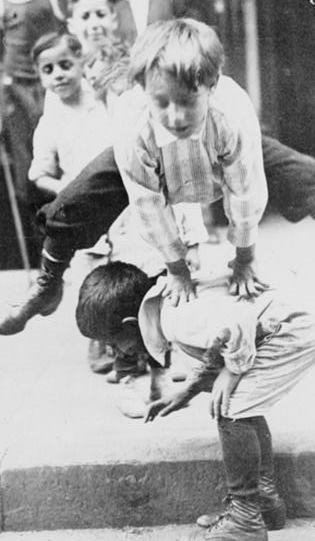Jane Jacobs spends a lot of time writing about the need for the city to accommodate strangers. When I first read this, I thought she was giving too much attention to a minor topic. I mean, you can always pull your shade, right? But the longer I live in the city, the more I see that the issue is much deeper than that.
People want the freedom to become friends with only the people they choose. They do not want to share all their private lives with all the neighbors. A good city neighborhood allows people to know lots and lots of acquaintances, but importantly allows those people to also have private lives.
Perhaps I am being to abstract to make much sense, so I will try an example:
The playground. At a well designed and well-attended playground, your child can meet and play with lots of other kids, and if you wish you can strike up a conversation with other parents, while they sit in the shade and watch; or you can sit and mind your own business. However, if play is limited to private areas such as yards, courtyards, or even to inside, then the parents are forced closer than they want to be to the other families. Families in this situation may choose to stay isolated, rather than open their private space to all kinds of strangers.
Residents of small towns, are forced to be intimate with neighbors. This could be good, but it could also be bad. See, I would rather choose who I become intimate with.
Suburbanites have the choice of following their little kids to the neighbors yard, (if you want to supervise them), or you can drive them to the local park to play. The real result of this arrangement is that families pick neighborhoods that are full of people very similar to themselves. Then, forced intimacy is more likely to be ok.
The advantage of city life is the huge variety and degrees of friendships that are available. Because you are not forced into intimacy with everyone, the range of people you feel comfortable living next to is much more diverse.
Cheers to the sober life
2 days ago






No comments:
Post a Comment